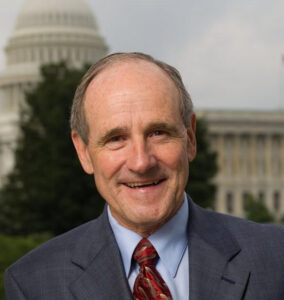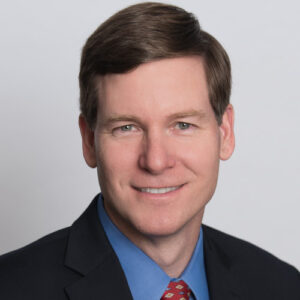Agenda
Thursday, Nov 09
-
7:30 am — 8:30 am
Networking Breakfast
-
8:30 am — 9:30 am
Nuclear Energy Security Landscape: Megatrends in Megawatts
Countries throughout the world are increasingly concerned about their energy security and are turning to nuclear energy to not only achieve their net-zero targets, but also to ensure a reliable and affordable supply of electricity for their energy security.
These opening speakers will provide an overview of the worldwide landscape in nuclear energy deployment and how geopolitics is altering the conversation, supply chains and prioritization of energy security, national or regional security, and climate outcomes.
Additionally, they will provide perspective on the technological advancements being made to meet these needs and where continued focus will be needed to meet, or accelerate, reactor deployment opportunities.
 William E. Fork
Partner
Pillsbury Winthrop Shaw Pittman LLP
William E. Fork
Partner
Pillsbury Winthrop Shaw Pittman LLP
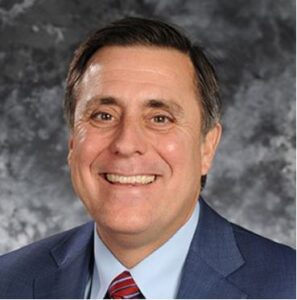 Mark Peters
Executive Vice President, Laboratory Management/Operations
Battelle
Mark Peters
Executive Vice President, Laboratory Management/Operations
Battelle
 Brian McCormack
Principal
UCAN Power
Moderator
Brian McCormack
Principal
UCAN Power
Moderator
-
9:30 am — 10:00 am
Keynote Address
U.S. Senator Jim Risch of Idaho provides a unique perspective on energy security and specifically nuclear energy security, from his key Senate Committee positions on Foreign Relations, Energy and Natural Resources and the Select Committee on Intelligence.
Additionally, Senator Risch represents the key national laboratory dedicated to nuclear energy, the Idaho National Laboratory, that supports the U.S. Department of Energy and its Office of Nuclear Energy, and where the very first nuclear reactors were developed and where ongoing research, develop, testing and evaluations is conducted to deploy the most advanced nuclear reactors and their fuels for both civilian and military purposes.
-
10:00 am — 10:15 am
Networking Break
-
10:15 am — 11:00 am
Global Nuclear Energy Security Among U.S. Allies
This distinguished group of allied nuclear country representatives discuss national perspectives on the importance of nuclear energy, energy security, reliability of supply, net-zero objectives, and the impact of geopolitical developments.
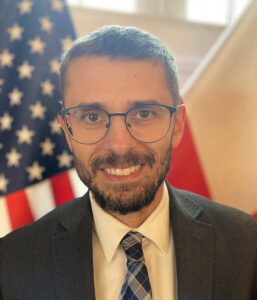 Bartosz Folusiak
Head of the Economic Section
Embassy of the Republic of Poland
Bartosz Folusiak
Head of the Economic Section
Embassy of the Republic of Poland
 Youngjae Kim
Economic Minister
Embassy of the Republic of Korea
Youngjae Kim
Economic Minister
Embassy of the Republic of Korea
 Eva Hunnius Ohlin
Senior Advisor for Energy and Environment
Embassy of Sweden
Eva Hunnius Ohlin
Senior Advisor for Energy and Environment
Embassy of Sweden
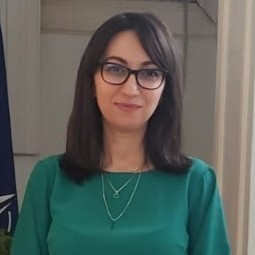 Ana-Maria Petrescu
Political Affairs Officer
Embassy of Romania
Ana-Maria Petrescu
Political Affairs Officer
Embassy of Romania
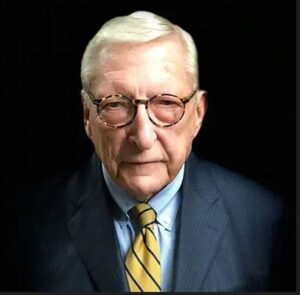 Theodore J. Garrish
President
UCAN Power
Moderator
Theodore J. Garrish
President
UCAN Power
Moderator
-
11:00 am — 12:00 pm
Energy Resilience in a Contested Environment - Department of Defense Programs for Advanced Nuclear Power
The Department of Defense has committed significant resources to enhance energy assurance, resilience, and sustainability for military forces by developing programs to unleash capabilities from the tether of contested fuel supplies and delivery arounds the world. Two distinct programs are committed to the deployment of advanced nuclear power reactors to reduce the reliance on commercial power or legacy generation for both domestic military bases and in overseas contingencies. This panel of experts from the Department of Defense will discuss the challenges faced to meet warfighter power and thermal needs, and update the audience on the progress of programs to meet those needs with nuclear reactor generation.
 Jess Gehin, Ph.D.
Associate Laboratory Director, Nuclear Science & Technology
Idaho National Laboratory
Jess Gehin, Ph.D.
Associate Laboratory Director, Nuclear Science & Technology
Idaho National Laboratory
 Peter Hooper, PE
Senior Lead Engineer
U.S. Air Force Office of Energy Assurance
Peter Hooper, PE
Senior Lead Engineer
U.S. Air Force Office of Energy Assurance
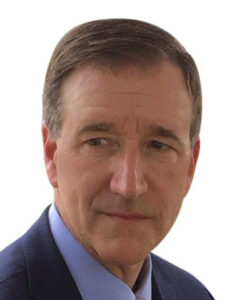 Richard Kidd
Former Deputy Assistant Secretary of Defense for Environment & Energy Resilience
Department of Defense
Richard Kidd
Former Deputy Assistant Secretary of Defense for Environment & Energy Resilience
Department of Defense
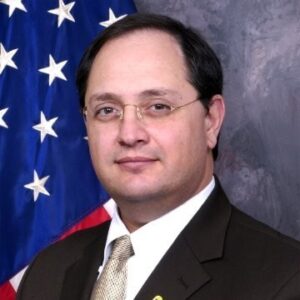 Juan Vitali, Ph.D.
Chief, Nuclear Power
U.S. Army (Headquarters)
Juan Vitali, Ph.D.
Chief, Nuclear Power
U.S. Army (Headquarters)
 Jeff Waksman, Ph.D.
Program Manager
Strategic Capabilities Office, Department of Defense
Jeff Waksman, Ph.D.
Program Manager
Strategic Capabilities Office, Department of Defense
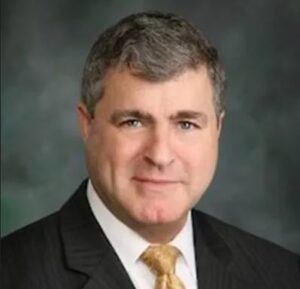 Lucian Niemeyer
Principal
UCAN Power
Moderator
Lucian Niemeyer
Principal
UCAN Power
Moderator
-
12:00 pm — 12:10 pm
Live Update from Bratislava, Slovakia from the Project Phoenix Workshop and Launch Event
Project Phoenix, announced by U.S. Presidential Envoy for Climate John Kerry at the UN Climate Change Conference in Sharm El-Sheikh, Egypt (COP27), “aims to accelerate the global clean energy transition by providing technical assistance to support decision making on pursuing the conversion of one or more coal-fired power plants to secure and safe zero-carbon small modular reactor (SMR) nuclear energy generation.
The project will be carried out under the U.S. Department of State’s Foundational Infrastructure for the Responsible Use of Small Modular Reactor Technology (FIRST) Program in cooperation with the U.S. Department of Commerce’s Small Modular Reactor Public-Private Program (SMR PPP), which aims to promote transatlantic cooperation to deploy SMRs in Europe and Eurasia”.
-
12:00 pm — 12:45 pm
Networking Luncheon
-
12:45 pm — 1:30 pm
Going Behind the Meter: Industrial Nuclear Energy Applications
As advanced nuclear leverages its size and flexibility, increased deployment opportunities are emerging. This is being seen in on-site generation, as envisioned for Eielson Air Force Base in Alaska, but also for off-site needs including data centers as well as chemical and steel production to support both civilian use and national security missions. Nuclear energy is also being considered as a clean and reliable base-load energy source for other locations, including other remote military installations and remote communities.
Standard Power’s Chairman Doug Wurth and CEO Max Serezhin will discuss their company’s infrastructure as a service business model. They will be joined by Clayton Scott, Executive Vice President of NuScale to discuss their recent partnership announcement and plans to develop two small modular reactor powered facilities in Pennsylvania and Ohio.
David Brown, Senior Vice President, Federal Government Affairs and Public Policy at Constellation, will discuss their continued focus on nuclear energy as the largest provider in the nation and behind the meter agreements they have for commercial & industrial customers.
These providers are especially aware of the national security community’s increased data needs for mission support and the growing importance of partnership between power and data providers.
 David Brown
Senior Vice President, Federal Government Affairs & Public Policy
Constellation
David Brown
Senior Vice President, Federal Government Affairs & Public Policy
Constellation
 Maxim Serezhin
Chief Executive Officer
Standard Power
Maxim Serezhin
Chief Executive Officer
Standard Power
 Clayton Scott
Chief Commercial Officer
NuScale Power
Clayton Scott
Chief Commercial Officer
NuScale Power
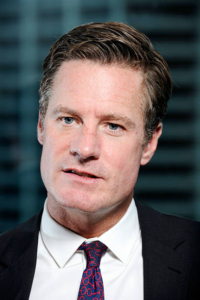 Douglas Wurth
Chairman
Standard Power
Douglas Wurth
Chairman
Standard Power
 Brian McCormack
Principal
UCAN Power
Moderator
Brian McCormack
Principal
UCAN Power
Moderator
-
1:30 pm — 2:15 pm
Global Suppliers for Nuclear Energy Security
This panel of nuclear energy reactor vendors and suppliers will provide overviews of their technological advancements and how they are bringing a new wave of nuclear energy technologies to market commercially and inside the U.S. Government for greater efficiencies and energy security.
Many of these technologies had their birth at our national laboratories, including Argonne National Laboratory, the Idaho National Laboratory, Oak Ridge National Laboratory and Los Alamos National Laboratory decades ago and are only now being perfected in the private sector for commercial use. Some of these advanced nuclear technologies will be used to diversify the energy mix and make the energy security transition more resilient.
 Roland Backhaus
Executive Vice President for Global Strategy
Ultra Safe Nuclear Corporation
Roland Backhaus
Executive Vice President for Global Strategy
Ultra Safe Nuclear Corporation
 VADM Frederick Roegge, USN, (ret.)
President
Holtec Government Services
VADM Frederick Roegge, USN, (ret.)
President
Holtec Government Services
 James Walker (BEng, MSc, CEng, PEng)
Chief Executive Officer
NANO Nuclear Energy, Inc.
James Walker (BEng, MSc, CEng, PEng)
Chief Executive Officer
NANO Nuclear Energy, Inc.
 Corey McDaniel, Ph.D
Northwest Regional Manager
Kiewit Nuclear Solutions
Moderator
Corey McDaniel, Ph.D
Northwest Regional Manager
Kiewit Nuclear Solutions
Moderator
-
2:15 pm — 2:45 pm
Networking Break
-
2:45 pm — 3:30 pm
State of the States in Nuclear Energy
Governors and state leaders are actively looking at the new opportunities for advanced nuclear deployments in supporting national security and energy resilience. As many as eight states have either expressed interest or made headway in being early deployers. Many of these states are also host to national defense critical infrastructure that would benefit from assured power supply.
We will hear from state energy leaders about their efforts in deploying advanced nuclear, attracting supply chains and workforces, and the challenges they face.
 Glenn Davis
Director
Virginia Department of Energy
Glenn Davis
Director
Virginia Department of Energy
 Brandon Gibson
Chief Operating Officer
Tennessee Governor’s Office
Brandon Gibson
Chief Operating Officer
Tennessee Governor’s Office
 Brian McCormack
Principal
UCAN Power
Moderator
Brian McCormack
Principal
UCAN Power
Moderator
-
3:30 pm — 4:15 pm
International Financial Support for Nuclear Energy
The U.S. International Development Finance Corporation (DFC) as the successor agency to the Overseas Private Investment Corporation (OPIC) partners with the private sector to “finance solutions to the most critical challenges facing the developing world today, while advancing American foreign policy and American commercial competitiveness”. DFC reversed a longstanding ban in 2020 to fund civilian nuclear energy projects that now will help increase global energy security to help meet emissions reduction goals while providing reliable baseload generation with nuclear power.
The International Bank for Nuclear Infrastructure (IBNI) is a conceptual new multilateral international financing institution that will provide financing and other support for qualified nuclear energy projects within its member countries. IBNI’s main mission will be to support key policy goals – energy security, decarbonization and sustainable development — through a transformative global expansion of nuclear energy.
 William Pegues
Structured Finance & Insurance
U.S. International Development Finance Corporation
William Pegues
Structured Finance & Insurance
U.S. International Development Finance Corporation
 Elina Teplinsky
Partner
Pillsbury Winthrop Shaw Pittman LLP
Elina Teplinsky
Partner
Pillsbury Winthrop Shaw Pittman LLP
 Jeff Crater
Principal
UCAN Power
Moderator
Jeff Crater
Principal
UCAN Power
Moderator
-
4:15 pm — 5:00 pm
Nuclear Fuels - Altering the World Dynamic on Nuclear Energy, Moving at the Pace of Uranium
Nuclear fuels seem to have been taken for granted with an abundant global supply chain. That is, until we saw a need to enrich uranium to HALEU while energy and national security requirements pivoted in favor of developing more indigenous capabilities and working even closer with allies. This session will address the current state of affairs on the nuclear fuel cycle and enriched uranium from a U.S. perspective, including enrichment, deconversion, advanced and accident tolerant fuels, used fuel, and a look into making reprocessing more efficient and affordable. We’ll also examine a possible revival of enriched uranium for national security purposes.
 Alan Ahn
Senior Resident Fellow for Climate & Energy Program
Third Way
Alan Ahn
Senior Resident Fellow for Climate & Energy Program
Third Way
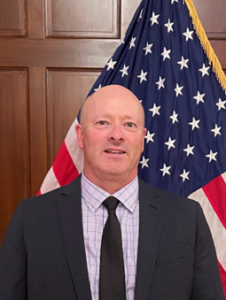 Jon Carmack, Ph.D.
Deputy Assistant Secretary
Office of Nuclear Energy, U.S. Department of Energy
Jon Carmack, Ph.D.
Deputy Assistant Secretary
Office of Nuclear Energy, U.S. Department of Energy
 Kyle Fowler
Domestic Uranium Enrichment Program Manager
National Nuclear Security Administration
Kyle Fowler
Domestic Uranium Enrichment Program Manager
National Nuclear Security Administration
 Jenifer Shafer, Ph.D.
Associate Director for Technology
U.S. Department of Energy
Jenifer Shafer, Ph.D.
Associate Director for Technology
U.S. Department of Energy
 Jeff Crater
Principal
UCAN Power
Moderator
Jeff Crater
Principal
UCAN Power
Moderator
-
5:00 pm — 5:30 pm
Final Thoughts on the Future of Nuclear Power
-
5:30 pm — 6:30 pm
Networking Reception

